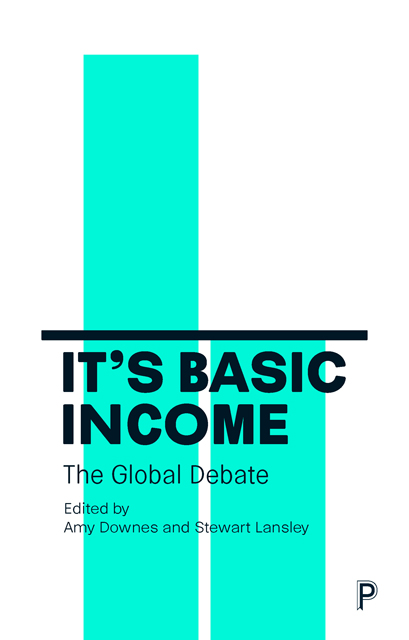22 - Unconditional basic income is a dead end
Published online by Cambridge University Press: 11 April 2023
Summary
‘… basic income … benefits the margins of society at the expense of the middle class. For the poor and long-term unemployed, the basic income removes the pressure to find work and the unpleasant task of motivating people to actively look for employment. It most likely won’t cost the rich any more than before, and helps ease their social conscience.’
The concept of an unconditional basic income is becoming increasingly popular among economists, managers, activists and entrepreneurs as an alternative to traditional social policy. Instead of providing social benefits in an emergency, for unemployment or old age, the government would pay every adult the same lump sum in the future – around €1,000–1,200 a month. There would then be no social benefits, no Hartz IV (Germany’s long-term jobless benefits), and most likely no pension or unemployment insurance.
This universal basic income promises each person the freedom to decide if they want to be employed, to do volunteer work – or do nothing at all. It promises politicians the luxury of no longer worrying about unemployment. And it gives companies an elegant way to justify job cuts. Jobs that fall victim to technological change or globalisation are no longer a problem, as those affected are financially secure and can look after their children at home or pursue hobbies.
Nevertheless, the basic income is a dead end. The most commonly cited reason for this is, of course, financing. Its costs have not been quantified, but it is certain that they will be high. Just how income and wealth should be taxed to pay for it remains an open question. Radically transforming the social system to a basic income would be the greatest financial gamble in recent history.
But the financial aspect is not even the most important argument against a basic income. The basic income is a seductive poison. It benefits the margins of society at the expense of the middle class. For the poor and long-term unemployed, the basic income removes the pressure to find work and the unpleasant task of motivating people to actively look for employment. It most likely won’t cost the rich any more than before, and helps ease their social conscience. In this case, growing social inequality would no longer be a social scandal, since everyone would have an income, albeit close to the poverty line.
- Type
- Chapter
- Information
- It's Basic IncomeThe Global Debate, pp. 113 - 116Publisher: Bristol University PressPrint publication year: 2018
- 1
- Cited by



